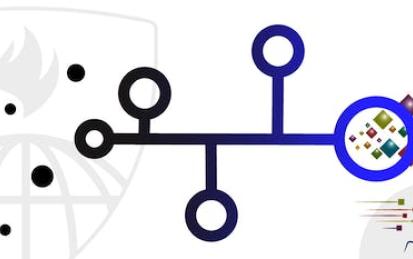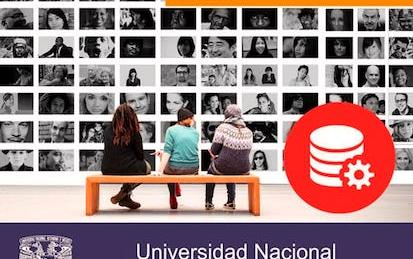

Our Courses

Getting and Cleaning Data
Before you can work with data you have to get some. This course will cover the basic ways that data can be obtained. The course will cover obtaining data from the web, from APIs, from databases and from colleagues in various formats. It will also cover the basics of data cleaning and how to make data “tidy”. Tidy data dramatically speed downstream data analysis tasks. The course will also cover the components of a complete data set including raw data, processing instructions, codebooks, and processed data. The course will cover the basics needed for collecting, cleaning, and sharing data.
-
Course by

-
 Self Paced
Self Paced
-
 20 hours
20 hours
-
 English
English

Single Variable Calculus
Calculus is one of the grandest achievements of human thought, explaining everything from planetary orbits to the optimal size of a city to the periodicity of a heartbeat. This brisk course covers the core ideas of single-variable Calculus with emphases on conceptual understanding and applications. The course is ideal for students beginning in the engineering, physical, and social sciences.
-
Course by

-
 Self Paced
Self Paced
-
 14 hours
14 hours
-
 English
English

Exploratory Data Analysis with MATLAB
In this course, you will learn to think like a data scientist and ask questions of your data. You will use interactive features in MATLAB to extract subsets of data and to compute statistics on groups of related data. You will learn to use MATLAB to automatically generate code so you can learn syntax as you explore.
-
Course by

-
 Self Paced
Self Paced
-
 19 hours
19 hours
-
 English
English

Qualitative Research
In this course, the second in the Market Research Specialization, you will go in-depth with qualitative market research methods, from design to implementation to analysis. Week 1: Define qualitative research and how it differs from quantitative research. Explore the various qualitative research methods and evaluate when and how to use them for your research project. Week 2: Design the qualitative instruments necessary for your interviews or focus groups, and plan your recruitment efforts. Write questions and prompts to ask in an interview or focus group.
-
Course by

-
 Self Paced
Self Paced
-
 15 hours
15 hours
-
 English
English

Using JavaScript, JQuery, and JSON in Django
In this final course, we'll look at the JavaScript language and how it supports the Object-Oriented pattern, with a focus on the unique aspects of JavaScript's approach to OO. We'll provide an introduction to the jQuery …
-
Course by

-
 Self Paced
Self Paced
-
 37 hours
37 hours
-
 English
English

Building Batch Data Pipelines on Google Cloud
Data pipelines typically fall under one of the Extract and Load (EL), Extract, Load and Transform (ELT) or Extract, Transform and Load (ETL) paradigms. This course describes which paradigm should be used and when for batch data. Furthermore, this course covers several technologies on Google Cloud for data transformation including BigQuery, executing Spark on Dataproc, pipeline graphs in Cloud Data Fusion and serverless data processing with Dataflow. Learners get hands-on experience building data pipeline components on Google Cloud using Qwiklabs.
-
Course by

-
 Self Paced
Self Paced
-
 17 hours
17 hours
-
 English
English

Astro 101: Black Holes
What is a black hole? Do they really exist? How do they form? How are they related to stars? What would happen if you fell into one? How do you see a black hole if they emit no light? What’s the difference between a black hole and a really dark star? Could a particle accelerator create a black hole? Can a black hole also be a worm hole or a time machine? In Astro 101: Black Holes, you will explore the concepts behind black holes.
-
Course by

-
 Self Paced
Self Paced
-
 18 hours
18 hours
-
 English
English

Autodesk Certified Professional: AutoCAD for Design and Drafting Exam Prep
Prove to potential employers that you’re up to the task by becoming an Autodesk Certified Professional. This online course from Autodesk prepares you by offering an overview of skills that match what is covered in the Autodesk Certified Professional: AutoCAD for Design and Drafting exam.
-
Course by

-
 Self Paced
Self Paced
-
 18 hours
18 hours
-
 English
English

Data Processing and Feature Engineering with MATLAB
In this course, you will build on the skills learned in Exploratory Data Analysis with MATLAB to lay the foundation required for predictive modeling. This intermediate-level course is useful to anyone who needs to combine data from multiple sources or times and has an interest in modeling. These skills are valuable for those who have domain knowledge and some exposure to computational tools, but no programming background.
-
Course by

-
 Self Paced
Self Paced
-
 20 hours
20 hours
-
 English
English

Origins - Formation of the Universe, Solar System, Earth and Life
The Origins course tracks the origin of all things – from the Big Bang to the origin of the Solar System and the Earth. The course follows the evolution of life on our planet through deep geological time to present life forms.
-
Course by

-
 Self Paced
Self Paced
-
 23 hours
23 hours
-
 English
English

Intermediate Object-Oriented Programming for Unity Games
This course is the fourth course in the specialization about learning how to develop video games using the C# programming language and the Unity game engine on Windows or Mac. Why use C# and Unity instead of some other language and game engine? Well, C# is a really good language for learning how to program and then programming professionally. Also, the Unity game engine is very popular with indie game developers; Unity games were downloaded 16,000,000,000 times in 2016!
-
Course by

-
 Self Paced
Self Paced
-
 52 hours
52 hours
-
 English
English

API Design and Fundamentals of Google Cloud's Apigee API Platform
In this course, you learn how to design APIs, and how to use OpenAPI specifications to document them. You learn about the API life cycle, and how the Apigee API platform helps you manage all aspects of the life cycle. You learn about how APIs can be designed using API proxies, and how APIs are packaged as API products to be used by app developers. Through a combination of lectures, hands-on labs, and supplemental materials, you will learn how to design, build, secure, deploy, and manage API solutions using Google Cloud's Apigee API Platform.
-
Course by

-
 Self Paced
Self Paced
-
 8 hours
8 hours
-
 English
English

Smart Analytics, Machine Learning, and AI on Google Cloud
Incorporating machine learning into data pipelines increases the ability to extract insights from data. This course covers ways machine learning can be included in data pipelines on Google Cloud. For little to no customization, this course covers AutoML. For more tailored machine learning capabilities, this course introduces Notebooks and BigQuery machine learning (BigQuery ML). Also, this course covers how to productionalize machine learning solutions by using Vertex AI.
-
Course by

-
 Self Paced
Self Paced
-
 7 hours
7 hours
-
 English
English

Relational database systems
Welcome to the specialization course Relational Database Systems. This course will be completed on six weeks, it will be supported with videos and various documents that will allow you to learn in a very simple way how several types of information systems and databases are available to solve different problems and needs of the companies.
-
Course by

-
 Self Paced
Self Paced
-
 15 hours
15 hours
-
 English
English

Cybersecurity Roles, Processes & Operating System Security
This course gives you the background needed to understand basic Cybersecurity around people. process and technology. You will learn:
● Understand the key cybersecurity roles within an Organization. ● List key cybersecurity processes and an example of each process.● Describe the architecture, file systems, and basic commands for multiple operating systems including Windows, Mac/OS, Linux and Mobile.● Understand the concept of Virtualization as it relates to cybersecurity
-
Course by

-
 Self Paced
Self Paced
-
 12 hours
12 hours
-
 English
English

Capstone: Applying Project Management in the Real World
You made it! Applying Project Management in the Real World is the final course in the Google Project Management program. In this capstone course, you will practice applying the project management knowledge and skills you have learned so far. If you haven’t taken Courses 1-6 yet, we highly recommend doing so, as they provide the foundation necessary to complete the activities in this course. As you progress through this course, you will “observe” a project manager in a real-world scenario and complete dozens of hands-on activities.
-
Course by

-
 Self Paced
Self Paced
-
 34 hours
34 hours
-
 English
English

Magnetics for Power Electronic Converters
This course can also be taken for academic credit as ECEA 5703, part of CU Boulder’s Master of Science in Electrical Engineering degree. This course covers the analysis and design of magnetic components, including inductors and transformers, used in power electronic converters. The course starts with an introduction to physical principles behind inductors and transformers, including the concepts of inductance, core material saturation, airgap and energy storage in inductors, reluctance and magnetic circuit modeling, transformer equivalent circuits, magnetizing and leakage inductance.
-
Course by

-
 Self Paced
Self Paced
-
 17 hours
17 hours
-
 English
English

Improving Deep Neural Networks: Hyperparameter Tuning, Regularization and Optimization
In the second course of the Deep Learning Specialization, you will open the deep learning black box to understand the processes that drive performance and generate good results systematically.
-
Course by

-
 Self Paced
Self Paced
-
 24 hours
24 hours
-
 English
English

In the Studio: Postwar Abstract Painting
Take an in-depth, hands-on look at materials, techniques, and approaches to making abstract paintings. Through studio demonstrations and gallery walkthroughs, you’ll form a deeper understanding of what a studio practice means and how ideas develop from close looking.
-
Course by

-
 Self Paced
Self Paced
-
 27 hours
27 hours
-
 English
English

Project Planning: Putting It All Together
This is the third course in the Google Project Management Certificate program. This course will explore how to map out a project in the second phase of the project life cycle: the project planning phase. You will examine the key components of a project plan, how to make accurate time estimates, and how to set milestones. Next, you will learn how to build and manage a budget and how the procurement processes work. Then, you will discover tools that can help you identify and manage different types of risk and how to use a risk management plan to communicate and resolve risks.
-
Course by

-
 Self Paced
Self Paced
-
 29 hours
29 hours
-
 English
English

Reliable Google Cloud Infrastructure: Design and Process
This course equips students to build highly reliable and efficient solutions on Google Cloud using proven design patterns. It is a continuation of the Architecting with Google Compute Engine or Architecting with Google Kubernetes Engine courses and assumes hands-on experience with the technologies covered in either of those courses. Through a combination of presentations, design activities, and hands-on labs, participants learn to define and balance business and technical requirements to design Google Cloud deployments that are highly reliable, highly available, secure, and cost-effective.
-
Course by

-
 Self Paced
Self Paced
-
 8 hours
8 hours
-
 English
English

The Social and Technical Context of Health Informatics
Improving health and healthcare institutions requires understanding of data and creation of interventions at the many levels at which health IT interact and affect the institution. These levels range from the external “world” in which the institution operates down to the specific technologies. Data scientists find that, when they aim at implementing their models in practice, it is the “socio” components that are both novel to them and mission critical to success.
-
Course by

-
 Self Paced
Self Paced
-
 9 hours
9 hours
-
 English
English

Introduction to Cybersecurity Tools & Cyber Attacks
This course gives you the background needed to understand basic Cybersecurity. You will learn the history of Cybersecurity, types and motives of cyber attacks to further your knowledge of current threats to organizations and individuals. Key terminology, basic system concepts and tools will be examined as an introduction to the Cybersecurity field.
You will learn about critical thinking and its importance to anyone looking to pursue a career in Cybersecurity.
-
Course by

-
 Self Paced
Self Paced
-
 18 hours
18 hours
-
 English
English
Social Media Advertising
Social media platforms are driven by digital advertising. As a result, social media advertising is affordable and can be purchased at almost any budget. Targeting options in social media advertising are also sophisticated. It is possible to tailor ads around a user’s behaviors (e.g., likes, posts and clicks). This course unpacks small business use cases of Facebook, Instagram and Twitter advertising. From basic campaigns, to advanced techniques including lookalike modeling and audience retargeting, this course shows how to effectively advertise on three major social media platforms.
-
Course by

-
 Self Paced
Self Paced
-
 17 hours
17 hours
-
 English
English

ART of the MOOC: Public Art and Pedagogy
Students of this course may try their hand at their own public art interventions, or simply focus on learning from the theory of public practice and its recent history. Designed by artist and Duke professor, Pedro Lasch, and co-taught by Creative Time artistic director, Nato Thompson, this course presents public culture and art in their radically reinenvented contemporary forms. The lectures link major developments of recent decades to wider topics like spatial politics, everyday social structures, and experimental education.
-
Course by

-
 Self Paced
Self Paced
-
 9 hours
9 hours
-
 English
English



